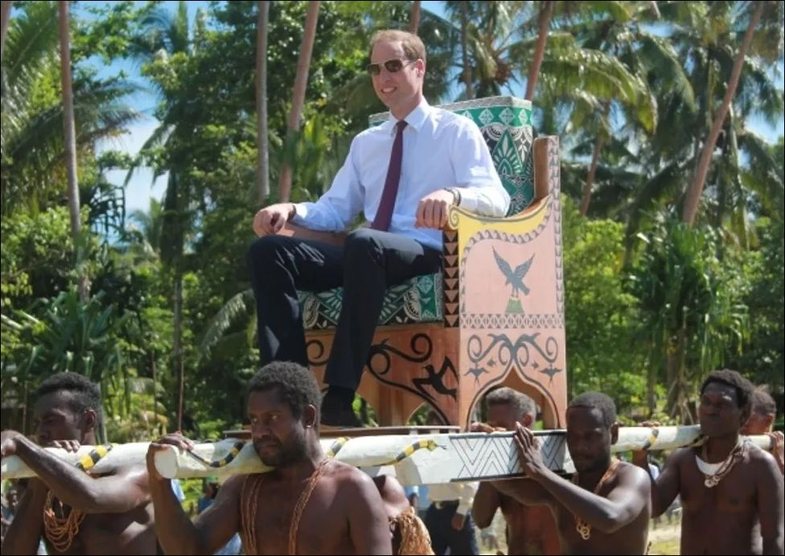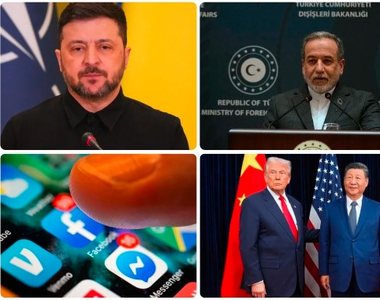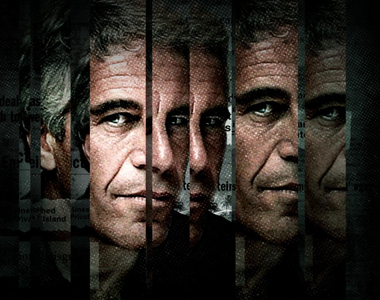
Meghan Markle's interview gave more buzz to what was discussed on social media whenever pictures of royals circulated near communities that are part of the UK. In other words, it was not the first time racism was discussed.
The following photo - which shows Prince William and Kate Middlton holding the throne by a group of people on the island of Tuvalu, part of the Commonwealth - has been widely criticized. In fact, although it seems like an advantage of the white race over the people of Tuvalu Island, it should be noted that this ceremony is a tradition of the locals to welcome guests. So it's not William or Kate's decision to be transported in this form. However, this does not disprove the discussion about the approach to racism.

Rachel Boyle, a head of interdisciplinary studies at Leeds Beckett University, which studies racism and ethnicity, addressed the phenomenon of racism within the kingdom as an institution.
"The institution of the monarchy dates back centuries, and we cannot ignore the royal family's links to historical racism and, indeed, slavery. "Countless British monarchs have played a key role in creating a society that has justified white supremacy and racial inequality." - she writes in an article for the Guardian.
Boyle highlights the slave trade and exploitation.
In the 1770s, when the government for the first time had to overcome the dilemma of governing a territory with "natives", racism was firmly established in Britain, supported and reinforced by the nation 's leading role in the transatlantic slave trade. This trade was established during the reign of Elizabeth I and would continue to be adopted by James I and Charles I.
Tregtia britanike e skllevërve përfundoi në 1807 dhe skllavëria në 1833. Sidoqoftë, racizmi nuk do të mbaronte me shfuqizimin. Racizmi u bë shërbëtorja e perandorisë. Mitologjia e racës dhe epërsia e të bardhës, do të bëheshin një përbërës kryesor në krijimin e imperializmit britanik. Dhe ky model historik i fanatizmit dhe paragjykimeve ende përshkon shoqërinë britanike sot.”
I pyetur për racizmin fill pas deklaratës së Meghan Markle, princ William, gjatë një vizite në një shkollë në Londër, tha se “familja mbretërore nuk është raciste”. Por Rachel Boyle mendon ndryshe:
“Që të ndodhë një dialog kuptimplotë rreth racizmit, ai duhet të largohet nga tradita e mosdhënies së intervistave dhe të flitet për të. Duhet parë që të shpërbëhen në mënyrë aktive strukturat e racizmit me një angazhim më të mirëfilltë dhe të vazhdueshëm me komunitete të ndryshme. Nëse Britania do të ketë ndonjëherë një monarki vërtet jo-raciste, anëtarët individualë të familjes duhet të përballen me të kaluarën e tyre dhe të pranojnë se është një përbërës integrues i atyre që janë. Është koha që ata të identifikojnë racizmin si një konstrukt të turpshëm. Ata duhet ta pranojnë qartë se kjo është një tipar i shoqërisë britanike që përfaqësojnë.”
Regarding the shift towards a non-racist society, she states that the first step is to “acknowledge the existence of racism within their family and identify racism in comments made about the Duke and Duchess of Sussex. "Only then can they begin to say that the monarchy is on a path to becoming a truly non-racist monarchy."

- The email that Meghan had sent to the royal palace after the quarrel with Kate is published
- The chairs in Meghan's interview are officially viral! Here is how much people are paying for them!
- Charges of racism: Prince William breaks the silence
- Someone worried about how dark the baby's skin would be: Oprah tells what Prince Harry said





